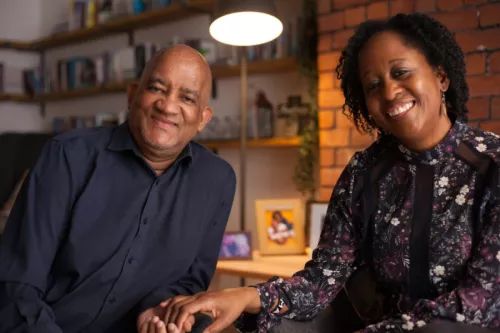Have you ever considered your relationship with money? It might sound like an odd question, but we do have an emotional connection to money because it means something to us.
That’s probably why money is the number one trigger of arguments between partners, according to a 2017 YouGov survey, and the conflicts are intense, less easily resolved and endure for longer than many others.
For Tim and Jacqui money was always tight growing up and, for most of their married life, money was a huge source of tension and arguments. Having children squeezed finances further and added to the conflict. Peter and Eilidh married in October 2018. They had very different priorities on what they wanted to spend on their wedding, and there were many tense and upsetting conversations. Matt and Jennie had to deal with an enormous debt early in their marriage, which put them under financial pressure for many years. It also left them feeling very isolated.
Like many of our attitudes and behaviours, we develop them growing up. Nick and Ruth came into marriage with very different backgrounds; Ruth’s parents instilled strict discipline around money, whereas Nick’s mum was a single working mother who subsidised her income with store cards. Nick borrowed freely whilst single and, when he was married, he realised his debts came to a staggering £22,000.
We’re often not aware of it but the way we handle money is a clue to the state of our hearts. For many people money provides a sense of security and typically they like to save as much as possible. For some, money can mean freedom and independence, and so sticking to a budget can feel like their freedom is being restricted. For others, money means success and status, perhaps resulting in spending more than they can afford to keep up appearances. Of course it’s good to save sensibly and it’s not wrong to enjoy the freedom of spending that a comfortable salary brings.
Jesus puts His finger on our emotional connection: “Where your treasure is, there you heart will be also (Matthew 6:21). He’s very clear where our priorities need to be: “You cannot serve both God and money” (Matthew 6:24b). We know Jesus wants to have first place in our hearts, but sin is in all areas of our lives and often we’re just blind to its subtle hold.
It’s worth understanding our relationship to money because it helps us to understand ourselves, communicate more honestly, and start to make changes where needed, which are important in themselves but especially in a marriage. FamilyLife, part of Agape UK, has teamed up with Christians Against Poverty to produce a free online resource to help couples manage money better.
Paula Stringer, UK CEO for Christians Against Poverty, says, “Talking freely about finances is one of the biggest challenges couples can face so we’ve been delighted to work with FamilyLife on this new Money Module for the Toucan app. The CAP Money Course referenced in the module has helped tens of thousands of people to budget. Our hope is that it will give people the best excuse for talking about their financial priorities rather than leaving it until a crisis point.”
Mark Daniel, director of FamilyLife UK, adds, “The Money Module helps couples explore their habits, attitudes and priorities towards money. It looks at some of the pressure points around communication to find ways of talking more constructively. The module also equips couples with some skills and tools to manage money better.”
The four couples feature in Toucan’s Money Module, vulnerably sharing their stories. Peter and Eilidh talk about how they learned to communicate more openly, managing their strongly held opinions and disagreements better. The couple are still learning to navigate their differences; Eilidh loves new experiences and travelling to visit friends, and would describe herself as a more impulsive spender, whereas Peter prefers to save and is cautious about spending. They recently bought their first home, making many significant financial commitments together.
Instead of letting the problem of their debt divide them, Matt and Jennie learned to adjust, living frugally and making positive parenting decisions within their budget. Nick and Ruth also spent a few years paying off debt and learned to budget and save with common goals. Tim and Jacqui learned a lot about good communication around money and making informed choices for the whole family, especially after Tim retired recently.
"The Money Module helps couples explore their habits, attitudes and priorities towards money."



